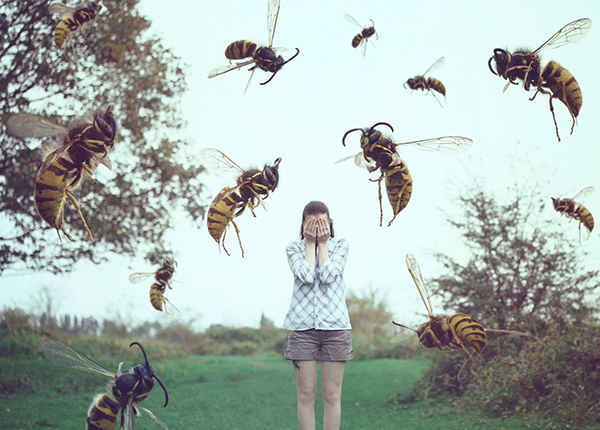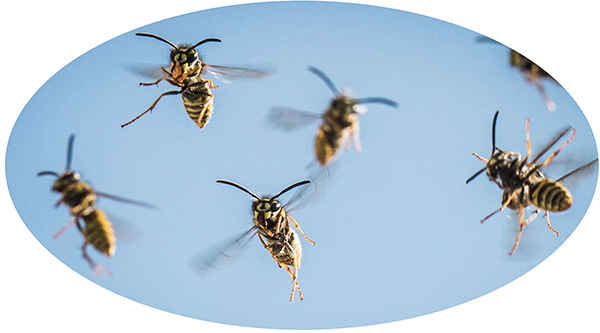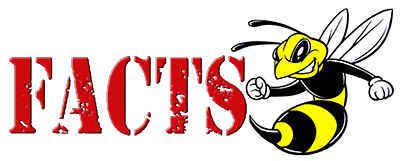Why are wasps so bad this year?

Impact of Climate Change
Climate change is significantly altering global weather patterns, leading to warmer temperatures and milder winters. These conditions create a favorable environment for wasps, as more of them survive the winter months and the breeding season becomes longer.
This results in larger wasp populations compared to previous years.
Mild Winters
Mild winters have a direct impact on the survival rate of queen wasps. With fewer queens dying during the winter, more emerge in the spring to establish new colonies.
The increase in the number of initial colonies causes a noticeable spike in the overall wasp population during the warmer months.
Abundant Food Supply
Human activities have inadvertently increased food supplies for wasps. More outdoor dining, combined with improper disposal of food waste, provides ample resources for wasps.
They are particularly attracted to sugary foods, fruits, and meat scraps, which are more readily available due to these changes in human behavior.
Decline of Natural Predators
The population of natural wasp predators, example: birds and certain insects, has declined due to habitat loss, pollution, and pesticide use.
This decline means there are fewer natural checks on wasp populations, allowing them to grow unchecked.
Adaptation and Resilience
Wasps are incredibly adaptable and resilient. They can thrive in a variety of environments, from urban areas to rural landscapes. Their ability to quickly exploit new nesting opportunities and their resilience to different conditions make them particularly troublesome.
News on Wasp Populations

Recent studies and news reports have highlighted that 2024 is seeing one of the highest wasp populations in recent years. This is attributed to the cumulative effects of several mild winters and an abundance of food sources.
Regions across North America and Europe are reporting record numbers of wasp encounters, leading to increased demand for pest control services.
How to Protect Yourself from Wasps

- Proper Food and Waste Management
Ensure that food is covered and sealed properly when dining outdoors. Dispose of food waste in sealed containers to avoid attracting wasps. Promptly clean up spills and leftovers to remove potential food sources.
- Seal Entry Points
Inspect your home for potential entry points – example: cracks, open windows, and vents. Seal these openings to prevent wasps from nesting inside buildings.
- Use Wasp Traps
Set up wasp traps around your property. These traps lure wasps in with bait and prevent them from escaping, thus reducing the local wasp population.
- Avoid Bright Colors and Strong Scents
Wasps are attracted to bright colors and strong fragrances. When spending time outdoors, wear muted colors and avoid using perfumes or scented lotions that might attract wasps.
- Professional Pest Control
If you notice a significant wasp problem, contact professional pest control services. They can safely and effectively remove nests and reduce the wasp population around your home.
Interesting Facts About Wasps

Complex Social Structure
Wasps exhibit a complex social structure. In species – example: the common yellow jacket, colonies can consist of thousands of individuals, with distinct roles for workers, drones, and the queen. Each member of the colony has specific duties that ensure the survival and efficiency of the group.
Beneficial Insects
Despite their reputation, wasps play a crucial role in ecosystems. They act as natural pest controllers, preying on other insects like caterpillars, flies, and spiders, which helps to maintain the balance of various insect populations.
Diverse Species
There are over 30,000 identified species of wasps worldwide, ranging from solitary to highly social species. Each species has unique behaviors, nesting habits, and roles within their ecosystems.
Stinger Facts
Unlike bees, wasps can sting multiple times without losing their stinger. This makes them more dangerous when provoked, as they can defend themselves or their nest repeatedly.
Pollinators
Some species of wasps also function as pollinators. While they are not as efficient as bees, they still contribute to the pollination of certain plants and flowers, supporting biodiversity.
Wasps in Agriculture
Wasps can be beneficial in agriculture by controlling pest populations. Farmers sometimes use wasps as a natural form of pest control to protect crops from harmful insects without resorting to chemical pesticides.
Understanding these aspects helps appreciate the ecological role wasps play while also highlighting the importance of taking necessary precautions to protect yourself from their aggressive tendencies.












